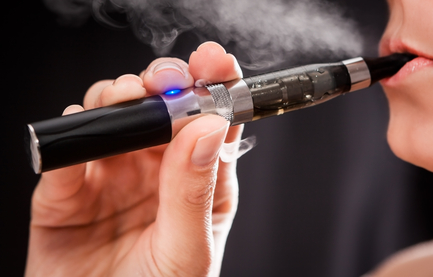I’m not going to mince words; if you are white and a current smoker, it’s time to stop. Not only are you risking a host of illnesses like lung cancer and heart disease, but you may also be plunging yourself into early menopause.
This is not the first time that I’ve written on this topic and it’s likely it won’t be the last. A few years ago, I shared that in a thorough review of 109 published studies, researchers have found the following:
- Current smokers appear to enter menopause anywhere from 2.5 months to 2.5 years earlier than non-smokers and have 1.3 to 1.7 times greater odds for early menopause
- Former smokers appear to start menopause as much as 2 years earlier than non-smokers, with the risk ranging from 30% to as high as 80%
- Although there is not a lot of information on the severity of smoking habit and menopause (i.e. number of cigarettes smoked daily), there is some indication that women who smoked more than 20 cigarettes daily were likely to start menopause as much as 2 years earlier than women who smoked 11 to 20 cigarettes daily
- The relationship between number of years having smoked and early menopause is unclear
Recent study findings from University of Pennsylvania researchers add to the current knowledgebase on smoking and early menopause, revealing that genetics may play a role. And, while data have already shown that smoking increases the risk of early menopause among women of all races, it now looks as though white women who smoke and have certain genetic variants are especially at risk. In fact, when researchers conducted lab studies on blood drawn from over 400 women enrolled in the ongoing Penn Ovarian Aging Study, they found that white women who reported that they were heavy smokers (at least a pack a day) and whose DNA showed a variation of specific genes (CYP3A4*1B ) entered menopause in almost half the time period as their light smoking (less than one pack daily) and non-smoking peers.
In stark numbers, these women entered menopause an average of 5 years after the entering the study, compared to 11 and almost 14 years, respectively for light and non-smokers. Even more striking was the fact that the women in the study were between the ages of 35 and 47. Women who carried another gene variant — CYP1B1*3 — also had earlier menopause but the contrast to their peers was not as striking.
Smoking exposes women to a variety of toxic chemicals and the implicated genetic variant itself results greater estrogen degradation and possibly even activates chemicals known as PAHs– polyaromatic hydrocarbons — carcinogens in cigarettes that have been shown to be toxic to immature egg cells.
Experts estimate that more than 20 million women in the United States are current smokers. And this figure only applies to combustibles. Personally, I have concerns about the upsurge in e-cigarettes, especially among women and particularly among 18 to 24 year olds who have reported trying them. The Centers for Disease Control reported that in 2012, 7% of students in grades 6 to 12 had tried e-cigarettes. And while current data suggest that nicotine delivered by vapor should theoretically carry less risk than cigarettes, less is known about the chemicals used to vaporize that nicotine and the long-term ills that they may cause.
The bottom line is that if you still smoke and you are in your 30s or early 40s, you are setting yourself up for an early entry into menopause. While a few hot flashes or mood swings may not frighten you, other associated issues like bone loss, increased risk for heart disease and disease and stroke might. More importantly, if you are white and smoking, you may consider signing up to have a DNA evaluation.
I know firsthand how difficult it is to stop smoking. But the risks truly outweigh the benefits of the instant gratification that a long pull on a cigarette can deliver.








